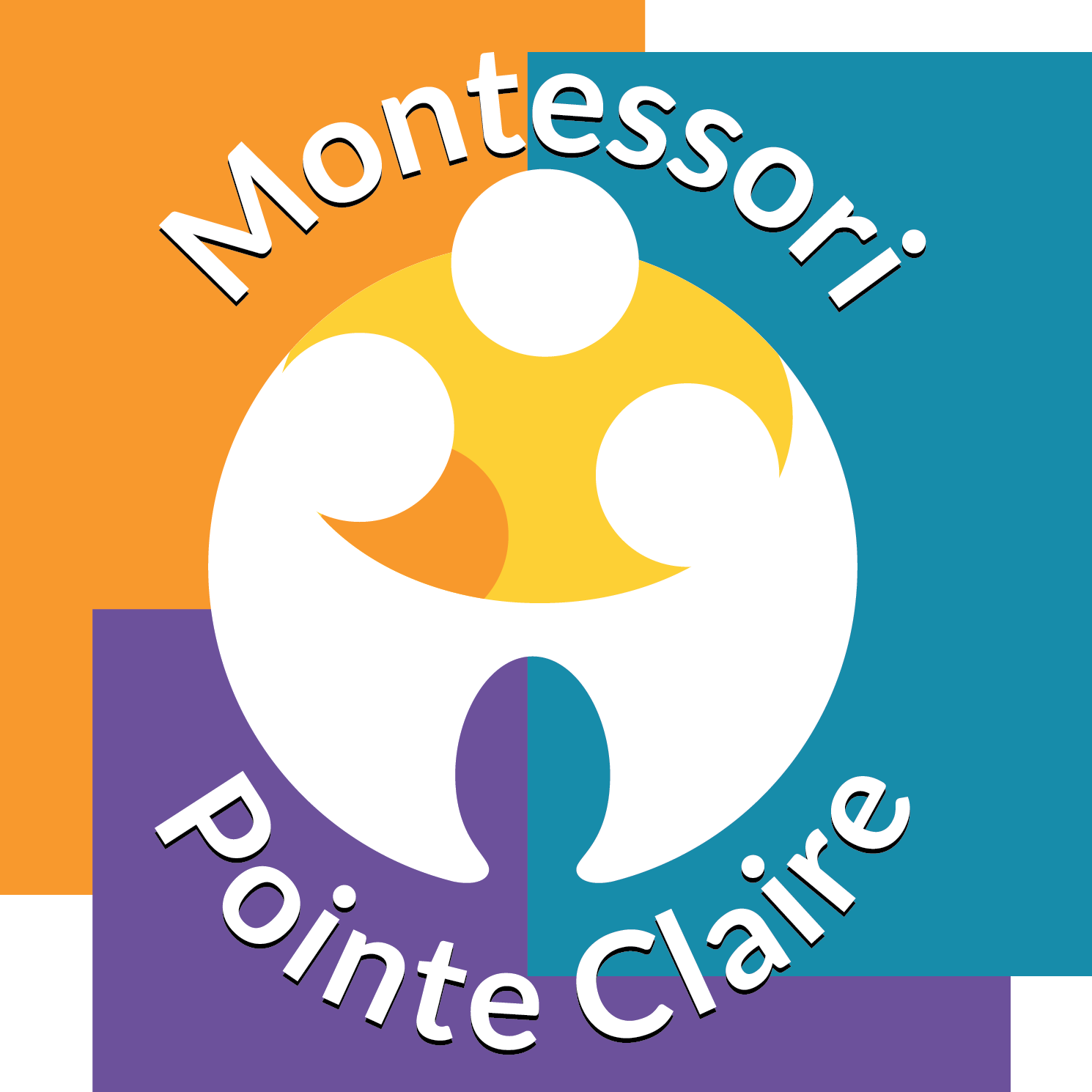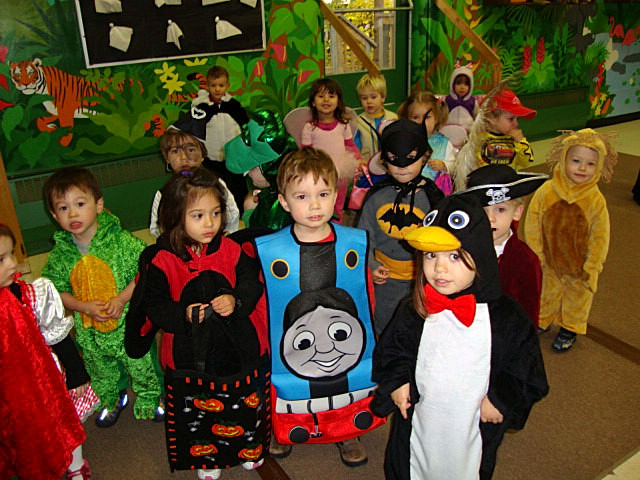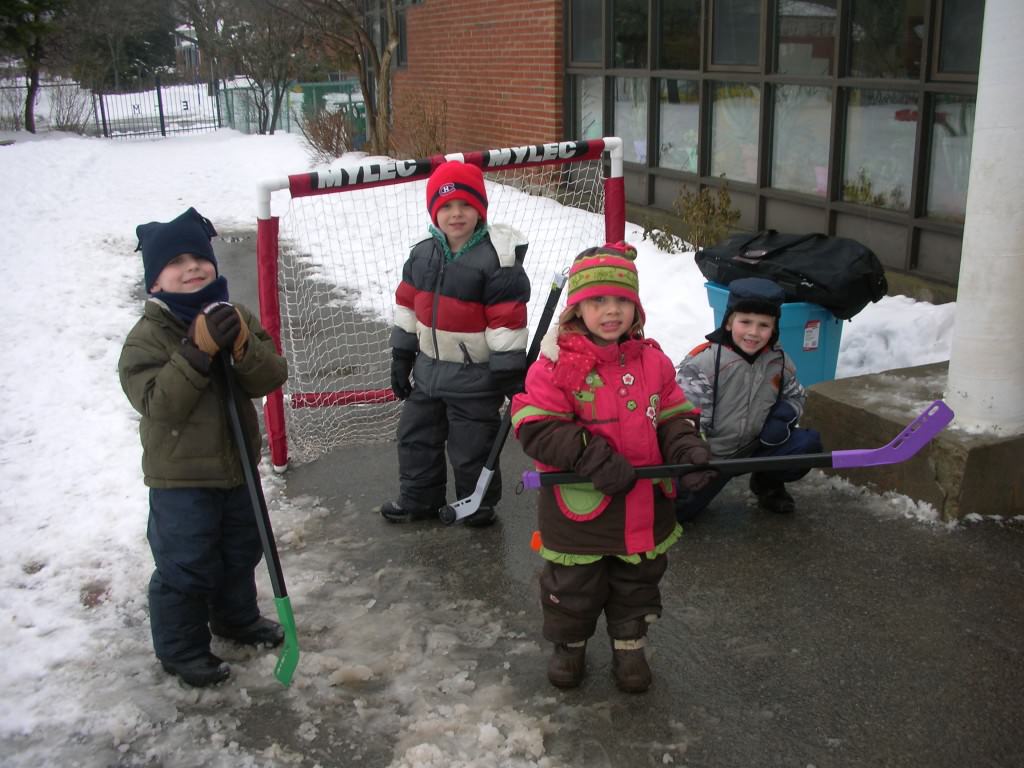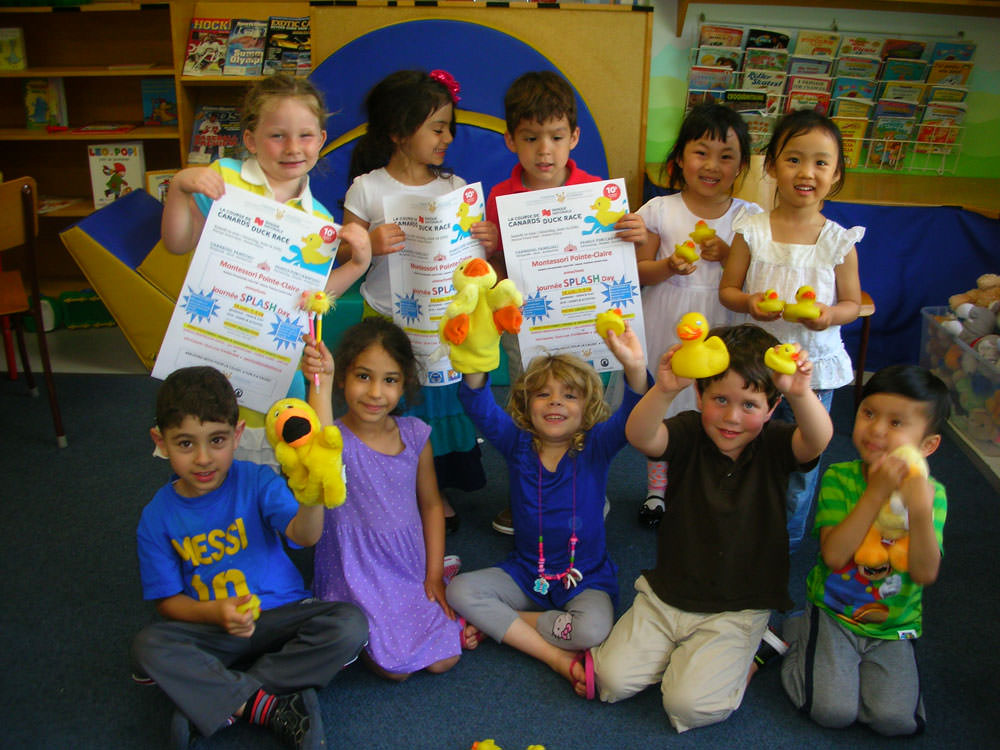by Mrs. Eva Stratis founder Montessori School of Pointe Claire
The purpose of a Montessori education is to help the child to cultivate his own natural desire for learning. In the Montessori classroom this objective is approached in two ways.
The first way is by allowing the child freedom of choice. This means that the child chooses his activity according to his interest at any particular moment. The teacher does not force the child to do an activity for which he has no interest. However, she can encourage him to develop that interest.
The second way that we help the child to develop his interest is by helping him to perfect his natural tools for learning. These tools are the child’s five senses: touch, sight, hearing, smell and taste. The Montessori material is designed to use all these senses in order to help the child to learn. This is what we mean by “sensorial” material. For example, there are the sand-paper letters which help the children learn the sounds and shapes of the alphabet through touch and sight. Dr. Montessori emphasized that the hand is the main teacher of the child.
The Montessori material communicates information to the child through the five senses because this is the best way to retain information.
From the ages of birth to 7 the child learns by absorbing information from his environment. We do not teach the child, the child teaches himself. We can help the child to learn, but we have to know how: we have to do it in the right way and at the right time.
Dr. Montessori distinguished different “Sensitive Periods” in the child’s intellectual development. The development begins form the day of birth and is almost completed by the age of 8. From the ages of 0 to 4, 50% of the mature intelligence is developed. Then from the ages of 4 to 8 there is another 30% development. This means that by the age of 8, 80% of mature intelligence has developed. The physical development is much slower, so we cannot use this as a guide to intellectual learning.
Let’s discuss the “Sensitive Periods”. Each age has a critical development period. For example, from 1 ½ to 3 years of age it is language development. If we do not help the child to develop his needs and interests at the time that they are ripe, the child will lose interest and his abilities will not reach their full potential. An extreme example is that of illiterate adults who try to learn at a late age to read and write. They have great difficulty to do what comes naturally to a child.
In the sensitive periods children also develop patterns of learning that will continue into adulthood. The skills a child learns in a Montessori school will follow him when he leaves: he will be a more efficient and effective worker and a better observer. If the child is in a stimulating environment, whether at home or at school, his self-education, which is the only real education, will continue in the years ahead.
In a Montessori school there are no rewards or punishments. When a child succeeds in doing an activity, his reward is his own satisfaction. We do not criticize a child for not succeeding in a particular activity. Instead, we help the child to develop his interest and ability so that he may one day succeed. We do not push a child to do an activity before he is ready, because this only creates a sense of failure for the child. In other words, we try to give a child material which meets and stimulates his capabilities: we do not give him material that is either below or above his abilities.
How you can help the child at home
- Have a specific place in the house for the child’s “intellectual” games and toys. These should be on low shelves, and preferably be kept in the same order so that the child knows where to take and replace his toy. This helps to develop a sense of security and order.
- When helping the child at home with his educational games or toys, be specific and simple in the instructions and explanations that you give.
- Demonstrate patience and bear in mind that what is easy for an adult is not easy for a child.
- If a child makes an error, don’t be quick to correct. Instead, let the child discover his own mistakes. Avoid criticism.
- In purchasing educational material look for toys and games that make use of the child’s hand and mind (for example, construction blocks)
- It is important to observe the child closely in order to understand his behaviour. The child may do things out of interest and curiosity, which are the seeds of learning, which we may misinterpret as disobedience.



